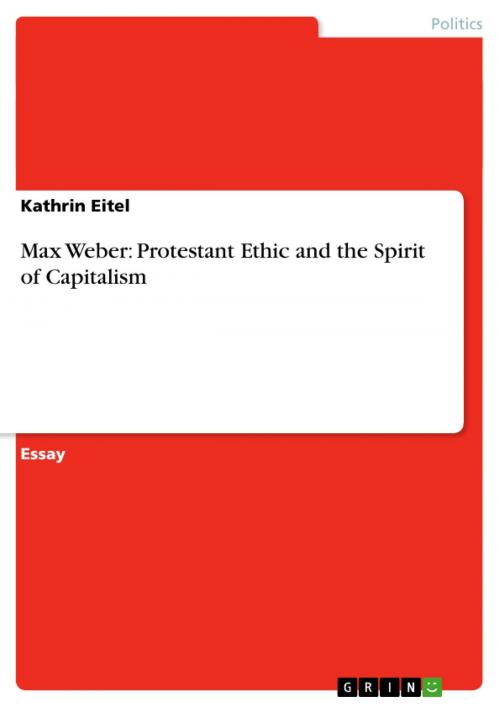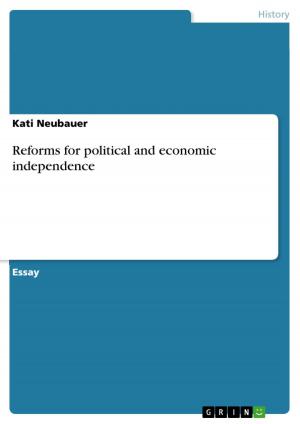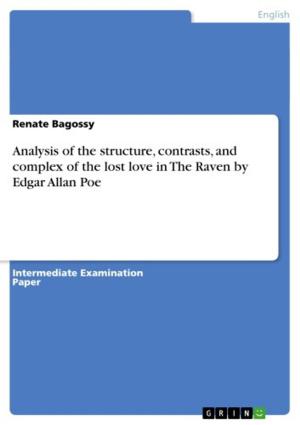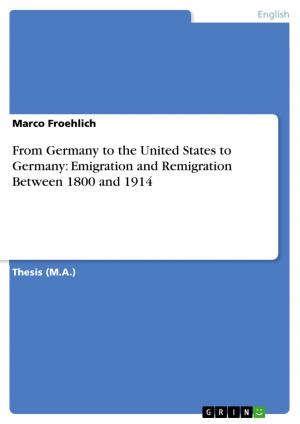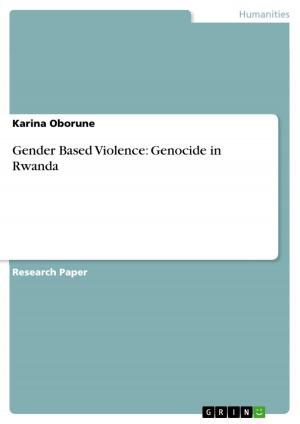Max Weber: Protestant Ethic and the Spirit of Capitalism
Nonfiction, Social & Cultural Studies, Political Science, International, International Relations| Author: | Kathrin Eitel | ISBN: | 9783640902682 |
| Publisher: | GRIN Publishing | Publication: | April 29, 2011 |
| Imprint: | GRIN Publishing | Language: | English |
| Author: | Kathrin Eitel |
| ISBN: | 9783640902682 |
| Publisher: | GRIN Publishing |
| Publication: | April 29, 2011 |
| Imprint: | GRIN Publishing |
| Language: | English |
Essay from the year 2010 in the subject Politics - International Politics - General and Theories, grade: 1, Istanbul Technical University (-), language: English, abstract: The Protestant Ethic and the Spirit of Capitalism, written by Max Weber, is one of the most important works he wrote, especially in the realm of Sociology and Religious Sociology. The following work is build up in accordance to the structure of the book, which is divided into two parts, namely, first the consideration of religious affiliation and social stratification, further on the 'spirit of capitalism' and finally the examination of Luther's concept of calling. In part two Weber describes various foundations of worldly asceticism, like Calvinism, Pietism, Methodism and Baptism, before he comes to the conclusionally chapter, in which he debates the connection between asceticism and the 'spirit of capitalism'. In the critical conclusion of this work, I will examine my point of view in regarding to the former described content of his book. Further I want to mention out, that after the publishing of his book in English in 1930 a lot of criticism was perpetrated. That means, that most of my own critics are congruent to other scientists.
Essay from the year 2010 in the subject Politics - International Politics - General and Theories, grade: 1, Istanbul Technical University (-), language: English, abstract: The Protestant Ethic and the Spirit of Capitalism, written by Max Weber, is one of the most important works he wrote, especially in the realm of Sociology and Religious Sociology. The following work is build up in accordance to the structure of the book, which is divided into two parts, namely, first the consideration of religious affiliation and social stratification, further on the 'spirit of capitalism' and finally the examination of Luther's concept of calling. In part two Weber describes various foundations of worldly asceticism, like Calvinism, Pietism, Methodism and Baptism, before he comes to the conclusionally chapter, in which he debates the connection between asceticism and the 'spirit of capitalism'. In the critical conclusion of this work, I will examine my point of view in regarding to the former described content of his book. Further I want to mention out, that after the publishing of his book in English in 1930 a lot of criticism was perpetrated. That means, that most of my own critics are congruent to other scientists.
